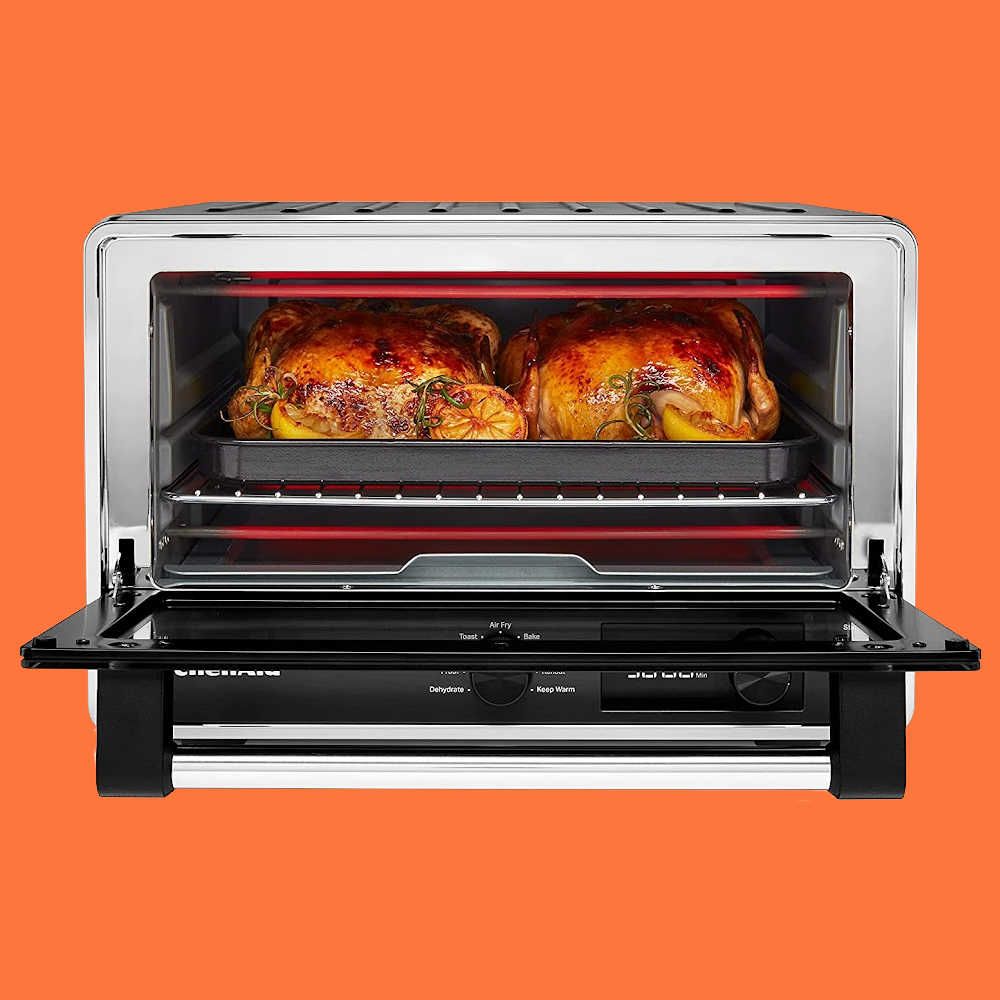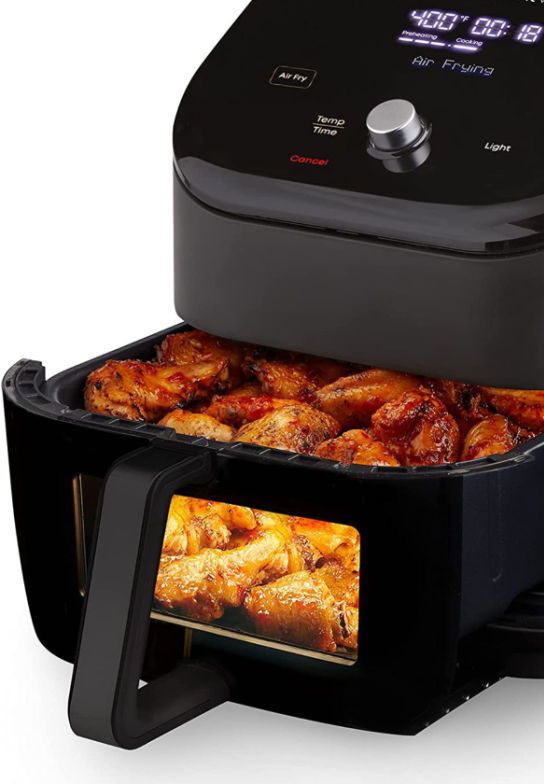Content Summary
Mini fridges are convenient appliances with space-saving capabilities. It’s important to be aware of the potential hazards a mini fridge can pose. One of the most common concerns is whether a mini fridge can catch fire.
Refrigerator fires do occur, but only under very specific circumstances. A mini fridge can catch fire due to various reasons, including electrical malfunction, blocked air vents, poor maintenance, improper use, overloading, a faulty light bulb, and more.
In this blog post, we will discuss the 8 reasons why mini-fridges can catch fire, and how to eliminate those issues. Don't wait for your smoke alarm to turn on. Prevent fridge fires.


1. Electrical Malfunction
Issues
- The most common reason for a mini refrigerator to catch fire is due to electrical malfunction.
- The problem can arise from a faulty electrical circuit, a loose connection, a damaged power cord (including an extension cord).
- These issues can spark and lead to electrical fires that can quickly spread.
Prevention
- Inspect the fridge’s electrical components regularly.
- Look for signs of frayed wires, loose connections, or any other signs of wear and tear.
- Make sure not to overload the fridge’s electrical circuit.
- Note: don't use your mini fridge outdoors. They are designed for indoor use.
2. Faulty Wiring
Issues
- Another potential reason for a mini fridge to catch fire is faulty wiring.
- Worn or frayed wires can generate heat, leading to a fire.
Prevention
- Turn off the fridge and Inspect the wires and cords regularly to ensure they are in good condition.
- If you notice any signs of wear and tear, have the wires and cords replaced right away.
3. Near Heat Sources
Issues
- The placement of the mini fridge can also affect its safety.
- Placing it near heat sources such as a stove or heater can cause it to catch fire due to the excess heat.
Prevention
- Place the fridge in a cool and dry area, away from heat sources.
- Make sure that the it stands on a flat surface, away from direct sunlight or any other source of heat, like an oven.
4. Blocked Air Vents
Issues
- Another reason why a mini fridge can catch fire is due to blocked air vents.
- Proper ventilation is crucial in preventing overheating as it allows hot air to escape.
- When the air vents get blocked, heat can get trapped inside, leading to overheating and eventually causing a fire.
Prevention
- Keep the fridge at least two inches from the wall and other objects to allow ventilation.
- Ensure that nothing obstructs the air vents at the back.


5. Poor Maintenance
Issues
- Dirt, dust, and debris can accumulate on the compressor and motor of the fridge and cause them to overheat.
- Dirty coils are less efficient, and can also cause a mini fridge to catch fire.
Prevention
- Clean the fridge regularly and keep it in good condition.
- You can use a vacuum cleaner or a coil-cleaning brush to clean the condenser coils and other parts of the fridge.
6. Improper Use
Issues
- Improper use can lead to a mini fridge catching fire.
- For instance, storing flammable materials like aerosol cans, alcohol, or cleaning products in or on top or close to the fridge can be dangerous.
- These items can leak or spill, and the fumes can ignite due to a faulty electrical connection causing a spark, or overheating.
Prevention
- Don't store flammable items in or nearby the fridge.
- Avoid throwing in wet items as they can potentially damage the electrical components.
7. Improper Unplugging
Issues
- Unplugging a mini fridge can cause it to catch fire if not done correctly.
- When you unplug the fridge, the compressor continues to run for a short time.
- If you plug it back in immediately after unplugging, the sudden surge of electricity can cause the compressor to overheat and eventually catch fire.
Prevention
- To avoid this problem, wait for at least 5 minutes before plugging the fridge back in.
- Doing so will help prevent an electrical surge and therefore reduce the risk of a fire.
8. Overloading
Issues
- Overloading your mini fridge with too much food can result in overheating and lead to a fire.
- When the fridge is overloaded, the compressor runs longer, and works harder to maintain the desired temperature than it should, putting a strain on the fridge's electrical system.
Prevention
- Avoid overloading the fridge and following the manufacturer's recommended capacity.
- Make sure that there is enough space for air to circulate.
Mini Fridge Fire Hazards FAQs
A used mini fridge, but also a new mini fridge can pose a fire risk. Here are some frequently asked questions about mini fridge fire hazards:
What should I do if my mini fridge catches fire?
If a mini fridge does catch fire, immediately unplug it and get it out of the area. Avoid using water to put out a mini fridge fire as this can spread the flames. Use a fire extinguisher or baking soda to smother the flames.
Can a mini fridge be on 24/7?
A mini fridge can be on 24/7 as long as you follow the manufacturer’s guidelines. Make sure to keep an eye on it and inspect it regularly for any signs of wear and tear. Also, avoid overloading the fridge as this can put a strain on the electrical system.
Should I unplug my mini fridge?
It is good practice to unplug your mini fridge when not in use or away for a long vacation. This will help reduce the risk of a sudden electrical surge and therefore prevent a potential fire. Make sure to wait for at least 5 minutes before plugging it back in after unplugging.
Why does my mini fridge smell like burning?
If your mini fridge smells burning, it is likely due to an electrical issue. This could be caused by a faulty wiring or loose connection.
It is important to inspect your fridge’s electrical components regularly and ensure they are in good condition. If the smell persists, you should have the fridge serviced by a professional.
What to do if fridge smells like burning plastic?
If your fridge smells like burning plastic, it is likely due to faulty wiring or a short-circuit. If this is the case, it could present a fire hazard and should be addressed immediately.
Unplugging your mini fridge and avoiding any further contact with it is the best way to prevent a potential fire. If the smell persists, it is important to call an electrician or a repair technician to inspect and repair the unit.
Can you put things on top of a mini fridge?
You can put things on top of a mini fridge as long as they do not block the air vents and they are not chemically dangerous. Blocked air vents can lead to overheating and eventually a fire. Make sure there is enough space for airflow between the fridge and any objects you put on top of it.
How do I know if my mini fridge is bad?
If your mini fridge is not cooling properly or it is making strange noises, it could be a sign there is a potential fire hazard. You should unplug the fridge and inspect its electrical components for any signs of wear and tear.
Make sure to clean the condenser coils regularly as dirty coils can make the fridge less efficient. If the problem persists, you should have the fridge serviced by a professional.
Tips & Tricks
- Don't keep your mini fridge in enclosed spaces as they can trap heat and increase the risk of fire.
- Inspect the wiring and cords regularly, and wait for at least 5 minutes before plugging the fridge back in.
- Use a surge protector to prevent electrical surges from causing a fire.
- Have your mini fridge serviced regularly by a professional.
- Check for recalls and safety warnings from your fridge’s manufacturer.
A mini fridge is an electrical appliance. Some parts may be highly flammable. Sooner or later may develop fire risks, but with minor precautionary measures, you can help prevent these issues from occurring.
Although there are always potential risks associated with any type of appliance, following these tips, you can avoid potential fire hazards and enjoy its efficiency for a long time.
Catchy Finds















